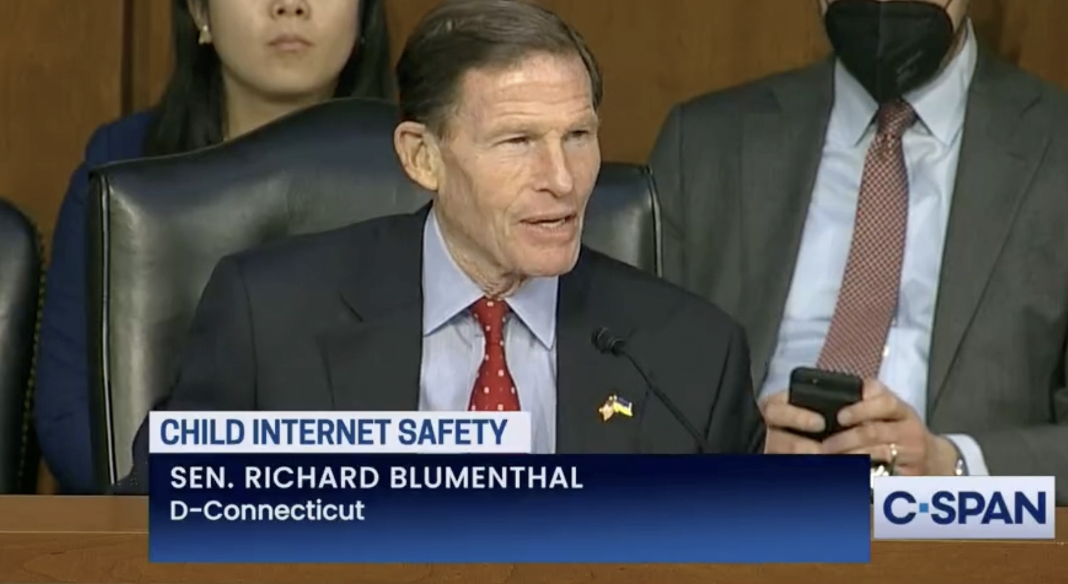Online safety for minors has been a topic of debate ever since the internet was created. From a young age, children have been taught digital safety, but lawmakers want to take it to a national level with the Kids Online Safety Act, or KOSA bill.
The KOSA bill was introduced in February of 2022 and has since been revised and reintroduced in May of 2023. The KOSA bill aims to provide a safer online experience for children by forcing social media platforms to provide people under 16 years of age with options to protect their information, disable addictive features, and opt out of personalized algorithmic recommendations. These settings must be turned on by default. Social media platforms must also give parents new ways to help support their children and spot harmful behaviors and provide them, and schools, with a dedicated channel to report any harmful behavior directed at kids.
At first glance, the KOSA bill seems like the perfect solution to online problems many young people face, but adults have pointed out that this bill will strip teenagers of their privacy. Amy Markan, advanced English teacher, believes that online safe spaces for young people will cease to exist.
“At first glance, I was like ‘Wow, this seems amazing, especially for my kids.’ One of my fears is online bullying and what they’re going to go through, but there might be LGBT kids trying to figure out where their place in life is or what they’re feeling in that moment and don’t feel comfortable telling their parents,” said Markan. “They should be able to look that stuff up without it being flagged to their parents because it might be as easy as ‘I want a definition.’”
People are also worried that parents will abuse their ability to monitor their child’s internet use. Markan finds that children should not be monitored so strictly.
“There’s all these apps out there that you can look at your kid’s phone activity already and I think you shouldn’t have even more access. I think we have to let our kids be kids a little bit, let them make a few mistakes, and guide them in the right way,” said Markan.
Adults have pointed out that this bill may go against the First Amendment and the right to have free speech. Markan disagrees but believes that the KOSA bill robs people of certain freedoms.
“You’re going to be stripping away, not necessarily First Amendment rights, but a lot of freedom. You think you’re giving parents control, but I don’t think you’re really realizing that you are giving the state control and it’s taking away the rights of everyone,” said Markan. “Kids who are just trying to identify themselves or just anything you look up will be flagged, so I just think it’s going to cause more harm than good in the end. I do think there should be something done [about online safety], I just don’t know what.”
Many people are also worried about the power this will give technology companies. Jordan Johnson, campus technician, believes that the KOSA bill will only make online censorship worse.
“I think it’s going to have chilling effects on free speech and it’s going to prevent the free access of all sorts of health information and stifle people that are activists. It gives the tech companies a broad brush to put anything down,” said Johnson. “X, Microsoft, and Facebook have already come out in favor of it. They’re like ‘Yeah, protect children,’ but it’s just going to be something else they can use to remove speech that they don’t like.”
People are concerned that the KOSA bill will set a precedent for future bills to further restrict people’s online experiences. Johnson believes that the KOSA bill will unfortunately be passed.
“They have been trying to do this kind of stuff for years and every time people complain, they give a little freedom back, like they made some amendments to the bill, but it really doesn’t change the overall effects of the bill,” said Johnson.
The KOSA bill, while presented as a bill to protect kids, has upsetting side effects that have parents and regular internet users concerned. People believe that their online freedoms will be taken away, and the government and technology companies will gain much more power over what people can say online.


